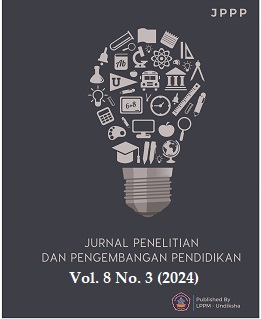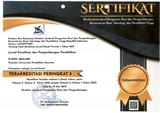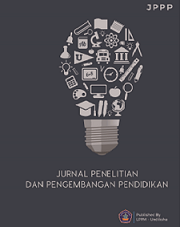CIPP Evaluation Study on Listening for Daily Context Course in English Language Education Study Program
DOI:
https://doi.org/10.23887/jppp.v8i3.82595Keywords:
Evaluation Studies, CIPP, Listening for Daily ContextAbstract
The Listening for Daily Context course in the English Language Education Study Program, Mahasaraswati University, Denpasar, has never been evaluated even though listening is an important skill in language learning. This study aims to evaluate the implementation of the course using the CIPP (Context, Input, Process, Product) evaluation model. This research is a qualitative study involving study program managers, lecturers, and students as participants. Data collection was carried out through open interviews and document studies. The results of the study show that this course is well designed, in accordance with clear curriculum goals, combines theory and practice, and is supported by adequate human resources and facilities. The evaluation also showed that this course was proactive in overcoming challenges, integrating feedback from students, and having a positive impact on students' listening comprehension and communication skills. However, there is still a need for improvements in technological updates and the use of more authentic materials. This study concludes that this course is effective in developing students' listening skills and recommends increased use of technology as well as opportunities for listening practice in real contexts to prepare students to communicate academically and professionally. This evaluation provides insight to continue to improve this program so that students are ready to communicate in English academically and professionally.
References
Abad, M. (2023). EFL Teachers’ Beliefs About Listening and Their Actual Listening Instructional Practices. Profile Issues in TeachersProfessional Development, 25(1), 113–127. https://doi.org/10.15446/profile.v25n1.98510. DOI: https://doi.org/10.15446/profile.v25n1.98510
Abdul Rahman, N. F., & Baharudin, H. (2023). Metacognitive Awareness Level and Achievement in Arabic Listening Skills among Secondary School Students. International Journal of Academic Research in Business and Social Sciences, 13(12), 3275–3287. https://doi.org/10.6007/ijarbss/v13-i12/20197. DOI: https://doi.org/10.6007/IJARBSS/v13-i12/20197
Al-khresheh, M. H. (2020). The Impact of Cultural Background on Listening Comprehension of Saudi EFL Students. Arab World English Journal (AWEJ), 11(3), 349–371. https://doi.org/10.24093/awej/vol11no3.22. DOI: https://doi.org/10.24093/awej/vol11no3.22
Angelova, M., & Zhao, Y. (2016). Using an online collaborative project between American and Chinese students to develop ESL teaching skills, cross-cultural awareness and language skills. Computer Assisted Language Learning, 29(1), 167–185. https://doi.org/10.1080/09588221.2014.907320. DOI: https://doi.org/10.1080/09588221.2014.907320
Aulia, A. F., Asbari, M., & Wulandari, S. A. (2024). Kurikukulum Merdeka: Problematik Guru dalam Implementasi Teknologi Informasi pada Proses Pembelajaran. Journal of Information Systems and Management (JISMA), 3(2), 65–70. https://doi.org/10.4444/jisma.v3i2.955.
Bundi, P., & Pattyn, V. (2023). Citizens and Evaluation: A Review of Evaluation Models. American Journal of Evaluation, 44(4), 574–603. https://doi.org/10.1177/10982140211047219. DOI: https://doi.org/10.1177/10982140211047219
Chen, X., Zhang, Z., & Zheng, Z. (2023). Research and Practice of Project-based Curriculum Politics Evaluation System. Journal of Education and Educational Research, 2(3), 68–71. https://doi.org/10.54097/jeer.v2i3.7305. DOI: https://doi.org/10.54097/jeer.v2i3.7305
Danieli, P. P., Hanson, M. D., VanRiper, L., van Hoof, M. J., Thomas, I., Sibeoni, J., & Martin, A. (2024). Psychiatric clinical training across borders: developing virtual communities of practice through international co-constructive patient simulation. Academic Psychiatry, 48(1), 71–76. https://doi.org/10.1007/s40596-023-01880-9. DOI: https://doi.org/10.1007/s40596-023-01880-9
Darmayasa, I. P., & Suratmin, S. (2023). Sports Coaching and Koni Bali’s Leading Sports. Kinestetik: Jurnal Ilmiah Pendidikan Jasmani, 7(2), 276–284. https://doi.org/10.33369/jk.v7i2.27820. DOI: https://doi.org/10.33369/jk.v7i2.27820
Fawaid, A., & Damayanti, A. D. (2024). Pendekatan Pengajaran Bahasa Komunikatif Untuk Meningkatkan Keterampilan Berbicara Siswa pada Materi Bahasa Indonesia di Sekolah Dasar. Al-Madrasah: Jurnal Ilmiah Pendidikan Madrasah Ibtidaiyah, 8(1), 145–162. https://doi.org/10.35931/am.v8i1.2914. DOI: https://doi.org/10.35931/am.v8i1.2914
Gan, B., Menkhoff, T., & Smith, R. (2015). Enhancing students’ learning process through interactive digital media: New opportunities for collaborative learning. Computers in Human Behavior, 51, 652–663. https://doi.org/10.1016/j.chb.2014.12.048. DOI: https://doi.org/10.1016/j.chb.2014.12.048
Gilakjani, A. P., & Sabouri, N. B. (2016). Learners’ Listening Comprehension Difficulties in English Language Learning: A Literature Review. English Language Teaching, 9(6), 123–133. https://doi.org/10.5539/elt.v9n6p123. DOI: https://doi.org/10.5539/elt.v9n6p123
Giyarta, G., Rais, A. D., & Wahyuni, D. S. (2016). The use of authentic materials to improve students’ listening skill. English Education, 5(1), 82–86. https://doi.org/10.20961/eed.v5i1.35964.
Henrie, C. R., Halverson, L. R., & Graham, C. R. (2015). Measuring student engagement in technology-mediated learning: A review. Computers & Education, 90, 36–53. https://doi.org/10.1016/j.compedu.2015.09.005. DOI: https://doi.org/10.1016/j.compedu.2015.09.005
Hussain, I., Khan, M. A., & Yousafzai, R. A. (2022). The Impact Of Authentic Materials In Developing Listening And Speaking Skills Of The Esl Secondary Level Learners In Karachi Pakistan. Pakistan Journal of Educational Research, 5(3), 11–26. https://doi.org/10.52337/pjer.v5i3.594.
Ilesanmi, A. (2023). Teaching and Learning with Instructional Videos: Issues and Concerns for Educational Practice. International Journal of Instructional Technology and Educational Studies, 4(1), 1–6. https://doi.org/10.21608/ihites.2022.121271.1110. DOI: https://doi.org/10.21608/ihites.2022.121271.1110
Janawati, N. L. P. G., Supena, A., & Akbar, Z. (2020). Evaluasi Pendidikan Inklusi di Sekolah Dasar Negeri. Journal of Education and Instruction (JOEAI), 3(2), 211–221. https://doi.org/10.31539/joeai.v3i2.1461. DOI: https://doi.org/10.31539/joeai.v3i2.1461
Jaya, S., & Hamzah, S. (2022). The Using Context, Input, Process, and Product Evaluation Model for Evaluating Online College EFL Learning. International Journal of Educational Research & Social Sciences, 3(6), 2460–2470. https://doi.org/10.51601/ijersc.v3i6.559. DOI: https://doi.org/10.51601/ijersc.v3i6.559
Kamsurya, R. (2020). Learning Evaluation of Mathematics during the Pandemic Period COVID-19 in Jakarta. International Journal of Professional Development, Learners and Learning, 1(2), ep2008. https://doi.org/10.30935/ijpdll/8439. DOI: https://doi.org/10.30935/ijpdll/8439
Kasimi, Y., & Höl, D. (2023). A qualitative study on listening skills in turkish efl classes. Novitas-ROYAL, 17(1), 91–107.
Khazinat, K., Putri, Z., & Sabrina, S. (2022). The Effectiveness of Learning Listening Using e-Belajar Kota Banda Aceh. Proceedings of International Conference on Multidiciplinary Research, 5(2), 82–87. https://doi.org/10.32672/pic-mr.v5i2.5411. DOI: https://doi.org/10.32672/pic-mr.v5i2.5411
Lu, G., Xie, K., & Liu, Q. (2022). What influences student situational engagement in smart classrooms: Perception of the learning environment and students’ motivation. British Journal of Educational Technology, 53(6), 1665–1687. https://doi.org/10.1111/bjet.13204. DOI: https://doi.org/10.1111/bjet.13204
Meadseena, A., Chano, J., & Nithideechaiwarachok, B. (2023). Needs Analysis of English Language Teaching and Learning in Upper Secondary Schools. Journal of Educational Issues, 9(1), 174–191. https://doi.org/10.5296/jei.v9i1.20633. DOI: https://doi.org/10.5296/jei.v9i1.20633
Mukhter, M. S., Yunus, F. K. C. Y., & Yuet, C. (2023). Evaluation of Automotive Technology Diploma Program at Malaysian Vocational College: Validity and Reliability. Journal of Academic Research in Business and Social Sciences, 13(2), 542–549. https://doi.org/10.6007/IJARBSS/v12-i1/12245. DOI: https://doi.org/10.6007/IJARBSS/v13-i2/16371
Nurhayati, L., Masaong, A. K., Uno, H. B., & Ngiu, Z. (2021). Evaluation of Academic Quality Assurance Program at Sultan AMAI State Islamic Institute Gorontalo. Journal of Asian Multicultural Research for Educational Study, 2(2), 31–40. https://doi.org/10.47616/jamres.v2i2.202. DOI: https://doi.org/10.47616/jamres.v2i2.202
Pangestu, D., Abdurrahman, E., Naibaho, D. M., & Lubis, F. H. (2023). Evaluation of the Achievement Development Program Unit Kegiatan Mahasiswa (UKM) Football In Sekolah Tinggi Olahraga and Kesehatan Bina Guna. Journal Physical Health Recreation (JPHR), 4(1), 242–248. https://doi.org/10.55081/jphr.v4i1.1656.
Pradana, M. R. A., & Josiah, T. (2024). Application of Technology in Educational Management in Rural Schools. Ensiklopedia: Jurnal Pendidikan Dan Inovasi Pembelajaran Saburai, 4(1), 37–43. https://doi.org/10.24967/esp.v4i01.3183. DOI: https://doi.org/10.24967/esp.v4i01.3183
Priya, M. L. S., & Kumar, P. N. S. (2022). Improving Vocabulary and Pronunciation of Secondary Level ESL Learners Through Language and Meaning-Focused Listening- An Experimental Study. Studies in Media and Communication, 10(2), 272–278. https://doi.org/10.11114/smc.v10i2.5775. DOI: https://doi.org/10.11114/smc.v10i2.5775
Raharjo, M. A. B., Sulaiman, S., & Kusuma, D. W. Y. (2022). The Evaluation of The Achievement Sport Development Program Regional Student Sports Education and Training Centers (PPLOPD) in Kendal Regency. Journal of Physical Education and Sports, 11(3), 380–388. https://doi.org/10.15294/jpes.v11i3.62903.
Ratnaya, G., Indriaswuri, R., Widayanthi, D. G. C., Dalem, A. A., & Atmaja, I. (2022). CIPP evaluation model for vocational education: A critical review. Education Quarterly Reviews, 5(3), 1–8. https://doi.org/10.31014/aior.1993.05.03.519. DOI: https://doi.org/10.31014/aior.1993.05.03.519
Rejina, K. C., & Baral, P. (2023). Applying Context, Input, Process and Product (CIPP) Model for Course Evaluation. KMC Journal, 5(1), 205–218. https://doi.org/10.3126/kmcj.v5i1.52460. DOI: https://doi.org/10.3126/kmcj.v5i1.52460
Robiansyah, M., & Rochmahwati, P. (2020). Socio-Affective Strategies Employed By Students In Speaking Class. ELTALL: English Language Teaching, Applied Linguistic and Literature, 1(1), 9–9. https://doi.org/10.21154/eltall.v1i1.2097. DOI: https://doi.org/10.21154/eltall.v1i1.2097
Scîntei, L. (2023). Listening in Primary School – The Connection Between Listening, Comprehension and Expressive Reading. Revista Romaneasca Pentru Educatie Multidimensionala, 15(3), 419–431. https://doi.org/10.18662/rrem/15.3/774. DOI: https://doi.org/10.18662/rrem/15.3/774
Stufflebeam, D. L., Madaus, G. F., & Kellaghan, T. (2000). Evaluation models: Viewpoints on educational and human services evaluation. Springer Science & Business Media.
Teo, L. T. M. Z., Gani, N. I. A., & Ummah, M. H. (2022). Listening Difficulties and Strategies in Preparing for IELTS Listening Test Using Online Learning: A Case Study of Intensive English Learners. Teknosastik, 20(1), 1. https://doi.org/10.33365/ts.v20i1.1367. DOI: https://doi.org/10.33365/ts.v20i1.1367
Tiawati, R. L., Kurnia, M. D., Nazriani, N., Annisa, W., & Harahap, S. H. (2024). Cultural Literacy in Indonesian Language Learning for Foreign Speakers (BIPA): Overcoming Barriers and Fostering Language Proficiency with Cross-Cultural Understanding Issues. Journal of Pragmatics and Discourse Research, 4(1), 22–31. https://doi.org/10.51817/jpdr.v4i1.739. DOI: https://doi.org/10.51817/jpdr.v4i1.739
Tuanany, N. (2019). Strengths and weaknesses of using authentic materials in teaching listening comprehension. Lingue: Jurnal Bahasa, Budaya, Dan Sastra, 1(2), 104–112. https://doi.org/10.33477/lingue.v1i2.1186.
Waryono, E., Ahmad, M., & Rahmawati, D. (2023). Evaluating Training and Apprenticeship as Non-Formal Education at International Manpower Development Japan. Jurnal Paedagogy, 10(2), 320–329. https://doi.org/10.33394/jp.v10i2.6994. DOI: https://doi.org/10.33394/jp.v10i2.6994
Westcott, S., Simms, K., van Kampen, K., Jafine, H., & Chan, T. M. (2023). Off-Script, Online: Virtual medical improv pilot program for enhancing well-being and clinical skills among psychiatry residents. Academic Psychiatry, 47(4), 374–379. https://doi.org/10.1007/s40596-023-01778-6. DOI: https://doi.org/10.1007/s40596-023-01778-6
Zainudin, M., Utami, A. D., Widyaningrum, R., & Amin, A. K. (2023). The Evaluation of Research-based Learning on ‘Moodle’ Learning Management System Using CIPP Models. Pegem Journal of Education and Instruction, 13(4), 149–157. https://doi.org/10.47750/pegegog.13.04.18. DOI: https://doi.org/10.47750/pegegog.13.04.18
Downloads
Published
How to Cite
Issue
Section
License
Copyright (c) 2024 Ni Made Wersi Murtini

This work is licensed under a Creative Commons Attribution-ShareAlike 4.0 International License.
Authors who publish with the Jurnal Penelitian dan Pengembangan Pendidikan agree to the following terms:
- Authors retain copyright and grant the journal the right of first publication with the work simultaneously licensed under a Creative Commons Attribution License (CC BY-SA 4.0) that allows others to share the work with an acknowledgment of the work's authorship and initial publication in this journal.
- Authors are able to enter into separate, additional contractual arrangements for the non-exclusive distribution of the journal's published version of the work (e.g., post it to an institutional repository or publish it in a book), with an acknowledgment of its initial publication in this journal.
- Authors are permitted and encouraged to post their work online (e.g., in institutional repositories or on their website) prior to and during the submission process, as it can lead to productive exchanges, as well as earlier and greater citation of published work. (See The Effect of Open Access)








